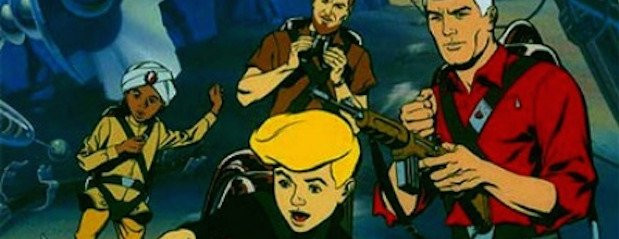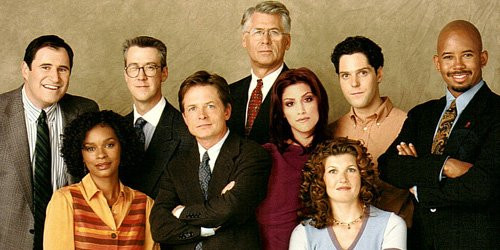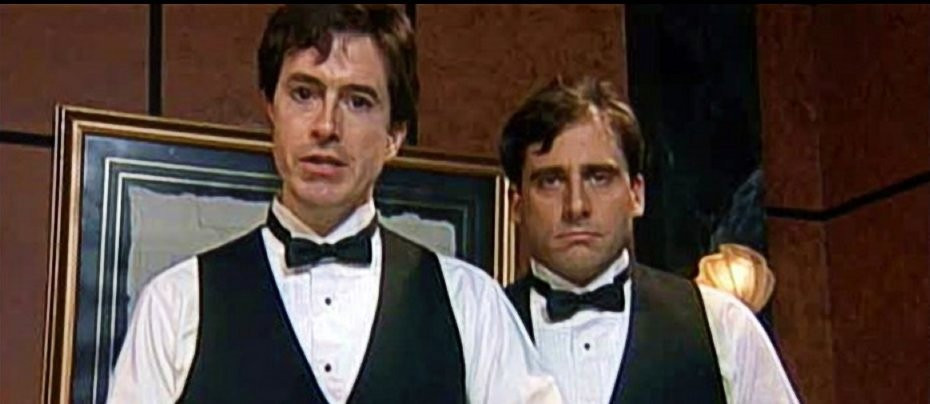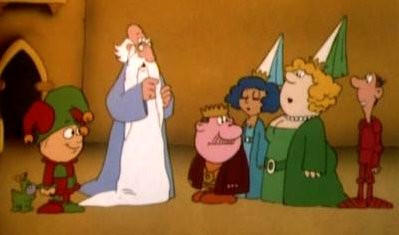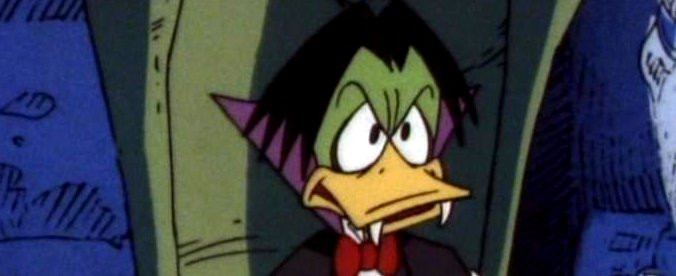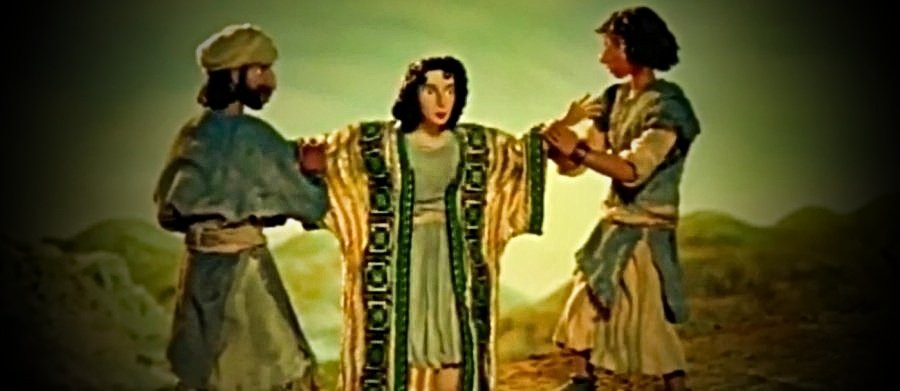
Testament: The Bible in Animation
1996 - United KingdomIn the 1980s, Wales began to develop a serious global level animation industry, culminating in what some have called a "Golden Age of Welsh Animation" in the 1990s.
The main catalyst for this was the launch of the Welsh language channel S4C in 1982. Given that only a few hundred thousand people in Wales actually speak Welsh, it had a limited target market. Since part of its remit was to produce original programming, this presented a huge problem in terms of economies of scale.
One solution was to shoot drama "back to back" - doing almost every scene twice, in Welsh and in English. Although they had some success with this, most notably with the high quality police show A Mind to Kill, it was obviously a more expensive process than normal production.
A cheaper solution was to invest in animation, which is more easily redubbed into different languages. It was a classic case of how a problem can be turned into an opportunity.
Two children's series commissioned by S4C, SuperTed and Fireman Sam, were also sold to the BBC and enjoyed considerable international success. On the back of this, Cardiff became something of a "hub" for animators, some working on commissions for S4C, others on their own independent films - or both. S4C supported projects included the later feature length Y Mabinogi, based on the cycle of epic Welsh poems written down in the 12th Century, released as Otherworld in English, and Joanna Quinn's Oscar-nominated Famous Fred.
However, S4C soon hit on an even better business formula. Marxist regimes had developed world class animation behind the Iron Curtain during the Cold War, investing in it both for propaganda and as a form of "soft power." There were therefore well developed production facilities in Eastern Europe desperate for business after the fall of the Berlin Wall and the break up of the Soviet Union, not least in Russia itself. Much of the leg work of the actual animation process could be done there to a very high quality, very, very cheaply.
In one of the first examples of an Anglo-Russian - or rather, in this case, Cambro-Russian - joint venture of the globalist era, S4C teamed up with the Russian Soyuzmultfilm animation studio to produce a prestige project, Shakespeare: the Animated Tales. This was a notable success, both commercially and critically, and helped put the young Welsh channel on the international map. They were keen to follow it up with another classic, and there is only one classic work better known and with higher status than Shakespeare - Testament: the Bible in Animation.

The later success of Mel Gibson's feature film The Passion of the Christ reminded "The Industry" that Christians are a huge potential market often ignored by the mainstream entertainment media. Yet producers remain reluctant to exploit it, partly because they are nervous about what most of them do not understand and partly because it is all too easy to get the tone of adaptations badly wrong.
The central dilemma of adapting any religious source is that believers, who are usually the primary target market, expect the adaptation to be as close as possible to the original, but the mainstream might have difficulty engaging with what can only be appreciated through the lens of faith.
For example, Abraham's willingness to sacrifice his beloved son is commended in the Bible as a proof of his obedience and trust in God, but, as the philosopher Soren Kierkegaard - himself a fundamentalist Christian - pointed out forcefully in a book he wrote on the incident, to any rational objective observer Abraham's actions are those of a lunatic.
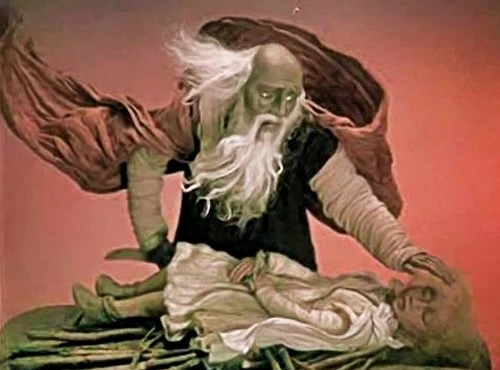
Indeed, the episode of 'Testament' dedicated to Abraham is conceptually one of the less successful, because it just has Abraham looking very sad about doing what he does not want to do and does not make it clear that Abraham expected his son back by resurrection because God had promised countless descendants by him. While someone who shares Abraham's faith might accept this, it is hard to dramatise for a general audience, so the episode did not try.
Linked by two basic religious themes, Faith and Providence, the nine individual episodes all took a middle path in their interpretation of their source material, some remaining closer to it than others - in purely dramatic terms, the former tended to be the better ones. Those that tried to make the stories more accessible to fashionable sensibilities only drew attention to the difficulties.
The nine episodes also differed in their tone and style, and even their method of animation. Three used stop motion while the other six used various forms of "drawn" animation.
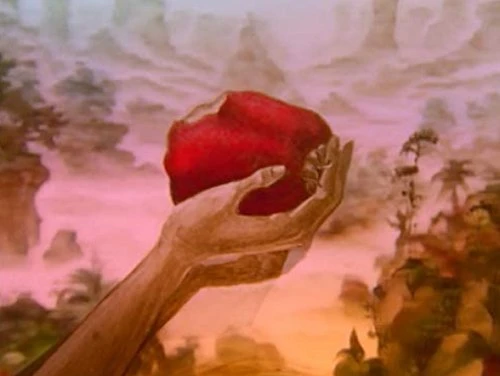
Of these by far the most visually impressive was the first episode, 'Creation and the Flood,' which combined two separate techniques: cell animation and oil painting on glass, an unusual and relatively expensive method of which the Russians are acknowledged masters, for "flash back" to the Garden of Eden. This gives the Garden scenes a rich, luscious quality, so that Paradise really looks like Paradise. The undoubted star of the show is a particularly seductive Serpent. Although we have already seen that he is really a fallen angel, he still seems so reasonable...
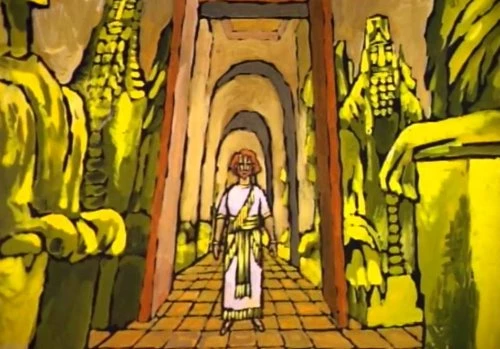
By contrast, the Impressionist style of the animation in the episode on 'Daniel' may not be to everyone's taste. The episode also suffers from a clumsy framing device linking it to the plight of generic contemporary refugees - a worthy intention but crassly done.

The depiction of Elijah, who gets his own episode, is particularly striking, especially since some of his lines are actually sung by the great Welsh baritone Sir Bryn Terfel - the use of excerpts from Mendelssohn's 'Elijah' oratorio making it something of a musical episode and a definite high point.
The choice of subjects for the episodes was interesting. The series restricted itself to the Old Testament, the New Testament being retained for a possible sequel. Even so, there is no shortage of good stories from which to choose, as the last two thousand years of Western art, music, and literature can confirm. It was more or less compulsory to include Moses, David, and Elijah, but there were also one or two surprises.
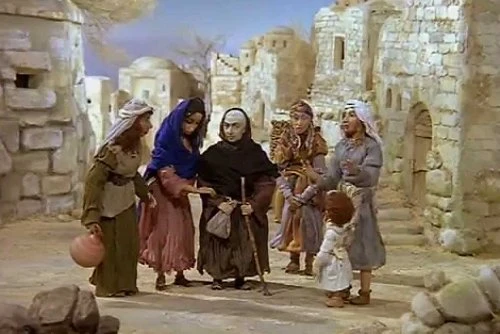
The story of Ruth was not an obvious selection. It is not as well known as the adventures of some of the big male heroes like Samson and David. Sandwiched between the ultra-violent Book of Judges and the swashbuckling adventures of David in the almost-as-violent Book of Samuel, the little Book of Ruth is a charming pastoral romance, a complete change of tone and a welcome relief for four chapters. One of two Books of the Bible with female protagonists, it is also one of the less overtly religious parts of Scripture, but Faith is at work in Ruth's loyalty to her widowed mother-in-law and Providence in a happy ending. It is a tale of ordinary people, not Kings and Judges, a broader significance being revealed only in its closing verses. The delightful animated version actually clarifies the Book by explaining some of its less comprehensible verses in the cultural context of the time.
Another change of tone from the serious stories of high tragedy that tend to dominate the project comes at the very end when the Book of Jonah is played, successfully, for laughs. This is by no means irreverent since the prophet as he is presented in the Book is supposed to be something of an idiot. The moral seems to be that God can use even the most unpromising material for His Purposes.
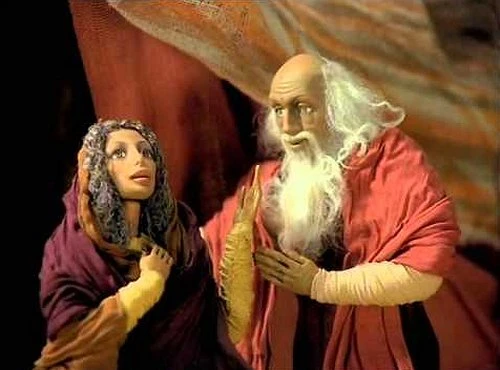
In the English language dub, Jonah was given a splendid curmudgeonly voice by John Alderton, already familiar to S4C as the English version of Fireman Sam. Indeed, the Welsh producers did not stint on the English voice cast, which also included Robert Hardy, Joss Ackland, Clive Russell, T P McKenna, Bill Nighy, Alan Dobie, Jane Lapotaire, Ian McNeice, Clive Merrison, Martin Jarvis, Anton Lesser, Hannah Gordon, Ciaran Hinds, Carolyn Pickles, David Schofield, Simon Callow, Anna Carteret, Paul McGann, David Burke, Christopher Guard, and Philip Franks.
The theme used in the titles sequence that introduced every episode was 'Adiemus,' then a recent composition by another Welshman, Karl Jenkins.

The net result of all this was another hit for S4C. Indeed Testament: the Bible in Animation was such a success that its sequel was a full scale animation feature, The Miracle Maker, based on the life of Jesus, with an all star cast led by Ralph Fiennes in the title role.
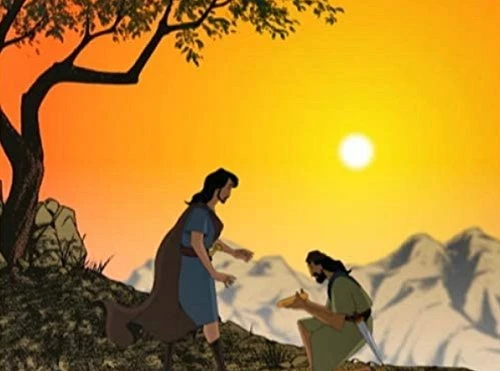
To tell the truth, the nine episodes varied as much in quality as much as they did in style. Yet all had something for both believers and the mainstream: all were thought provoking meditations on Faith and Providence, and at the same time all were powerful ancient stories powerfully retold with modern technology and imaginative flair.
Seen this show? How do you rate it?
Seen this show? How do you rate it?
Published on November 30th, 2020. Written by John Winterson Richards for Television Heaven.



